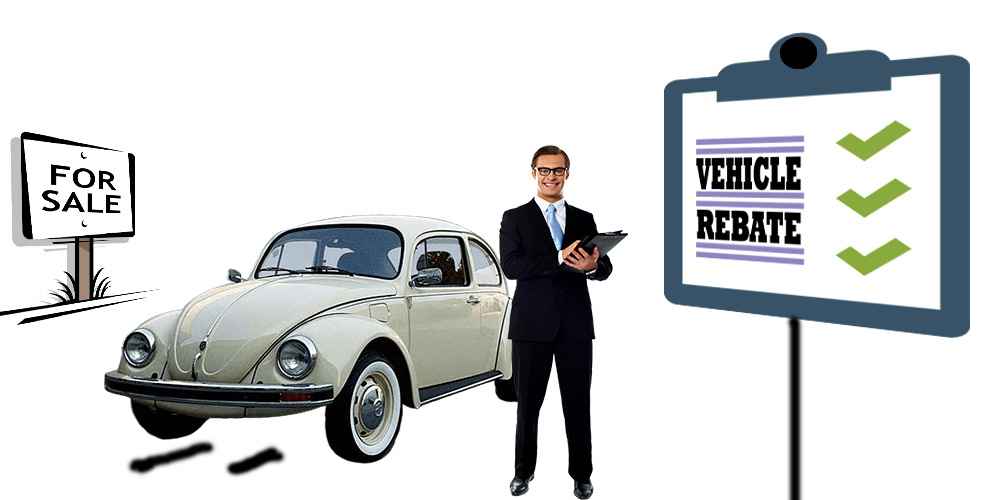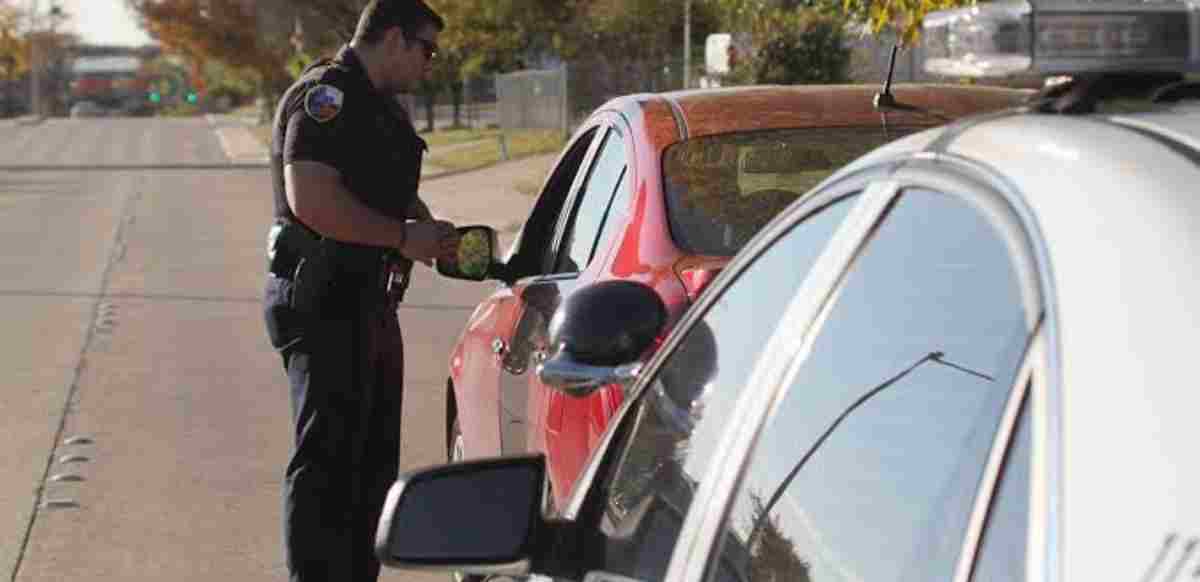Howdy, Driver? Vehicle rebate is one of the bonuses you should note before you go to buy a car. It is like a coupon in the automotive consumer market that helps you save some cash. Before you sign the vehicle contract, after beating the salesman, make sure the dealer applies the rebate (if you qualify).

What is Rebate on a Car?
A rebate on a car is the cash that a buyer receives after agreeing to finance, lease, or buy a car. Typically, vehicle rebates are known to be discounts from the dealership, but it is manufacturers that pass the discount to buyers through the dealer. A rebate on a car may also be called cash back, bonus cash, or purchase allowance.
Note that an automobile dealer may also offer rebates on vehicle purchases, but it is not common.
A rebate can be deducted from the vehicle purchase price or applied as a down payment if you are financing the car, it all depends on the manufacturer’s guideline.
Moreover, rebates on a car are usually short-term, typically 1-3 months. It is also determined by the make/model of a car and the location of the dealership.
How Car Rebates Work
Assuming BMW offers a $1,000 rebate on the 8 Series, all the dealerships must apply the rebate after a buyer agrees to purchase the 8 Series model of the BMW.
A dealer must not reduce the rebate, otherwise, it is an auto fraud, and you can report the dealership. If the rebate is $1,000, a dealer must not deduct even $0.01.
The automaker will state the eligibility requirements, which you must meet before the dealer can apply the rebate.
Below are examples of vehicle rebate eligibility requirements:
- A buyer must purchase the vehicle with cash.
- Financing must be done through the finance company of the automaker (if you are financing the car).
- A buyer must belong to a special group of buyers such as veterans, college graduates, disabled, etc.).
- A buyer must own a car from the brand (for example, if your previous car is a 2030 Toyota, you qualify for a rebate when buying the 2031 model).
- A buyer must select a vehicle from a limited inventory (you do not qualify if you buy a vehicle different from the rebated inventory).
To find out about the vehicles with rebates, visit the manufacturer’s website and look out for available offers. You will be asked to provide your ZIP code to display available offers from your local dealers. Alternatively, you can request available offers from your local franchise dealership. Make sure to request the eligibility requirements as well.
Car Dealer Rebate Scam: [Crime Watch]
A dishonest dealer always finds a way to defraud an uninformed car buyer. The problem is that most consumers are not informed about the vehicle rebates. A vehicle rebate comes off the vehicle purchase price, but the manufacturer reimburses the dealer. Thus, a rebate is not a loss, as an insincere dealer would claim, but a buyer-entitled bonus.
Note that a rebate is different from a dealer discount, a manufacturer is responsible for the bonus.
While a discount is a dealer price slash before a vehicle purchase agreement, a rebate is applied after the purchase agreement. Also, a rebate is typically higher than a discount and the dealership is not reimbursed by a manufacturer.
According to Edgar Dworsky, the founder of ConsumerWorld.org, consumers do not redeem between 40 and 60 percent of rebates.
It is notable in cases when a buyer qualifies for multiple rebates on one car, companies will ensure the rate of redemption stays low by making buyers’ claim for rebates difficult.
Some dealers take advantage of the opportunity to reserve rebates meant for qualified buyers to themselves. Since automakers do not inspect every vehicle sale, dishonest dealers get away with the rebate scam.
A dishonest dealer can fail to acknowledge that you qualify for a rebate consciously.
Assuming you are recent college graduate financing a Ford F-150 truck and the MSRP is $28,940 before the selling price. The rebate is $500 and the eligibility requirement(s) includes that you must be a recent college graduate or financing with Ford’s finance option.
The salesman will approach you with a statement including rebate and price still at $28,940 without disclosing it despite knowing that you are a recent college grad and that you are financing with Ford’s finance option.
If you finance with Ford as a college grad with the purchase price not including vehicle rebate, you are being scammed by the dealer and it is auto fraud.
However, it is not fraud if the dealer reveals the rebate and your eligibility, but still charges the amount after rebate as included in the purchase agreement.
Note that the dealership will be reimbursed by the manufacturer, so it is your right to get cash back in the deal since you qualify.
Parties that Enjoy Automaker Rebates
Manufacturers also offer incentives to dealers specifically so that they are encouraged to buy certain vehicles for sale. A dealer rebate, unlike a customer rebate, is offered to a dealer instead of the consumer.
The federal government also offers rebates in the form of tax credits for specific low emission and high mileage vehicles.
When dealers receive rebated prices for purchases from the manufacturer, they never reveal them to the public, otherwise, they will have to sell the cars at even cheaper prices.
Since manufacturers do not track rebates on cars, dealerships have the utmost control over their rates, except it is a direct rebate from manufacturers to consumers.
Examples of Special Manufacturer Rebates
Below are examples of special auto rebates:
-
First-Time Buyer Rebate
Automakers give first-timer rebates in an attempt to retain their shoppers.
-
College Grad Rebate
If you are a recent college grad or you will be graduating in a few months, typically 6 months, you may have a rebate bonus awaiting your vehicle purchase.
-
Loyalty Rebate
Every loyal customer is recognized and rewarded with the loyalty rebate. It encourages the buyer to remain faithful to the brand of the vehicle.
-
Military/Veteran Rebate
The military/veterans are also honored by automakers with rebates when buying a new car.
How is a Vehicle Rebate Used?
Rebates from manufacturers are the most common and the least complex bonuses to use when buying a car.
Below are the ways to use a vehicle rebate:
-
Down Payment
If you have no money to put as a down payment, your rebate is the best option. However, it would not be a large down payment.
-
Enlarge Your Down Payment
If you have your down payment already, you can increase it with the vehicle rebate. Assuming you have $3,500 for a down payment and a $1,000 rebate, your down payment becomes $4,500.
-
Check Out
If you are not financing the car, you can check out the rebate. Use it to pay for your registrations, obtain the drivers license, buy gadgets for the vehicle, etc.
Do rebates apply to used cars?
Yes, but not common. Also, rebates on used cars are offered by dealers and not the manufacturer and the bonus come from their bottom-line. Since it is not common to enjoy a rebate from a used car, you should inquire from the dealership about rebate offers before you go to buy from them.
Where can I get the best car rebate?
Car rebates differ, depending on the location, manufacturer, and vehicle make and model. To get the best car rebate, check the manufacturer’s website and compare the rebate amount on available vehicles. You can also contact your local dealership to request rebated cars and amount.
Is it better to get 0 financing or rebate?
A 0 financing reduces your monthly payment because you are not charged the interest rate. However, if the rebate is large, it can cover a huge portion of your down payment.


